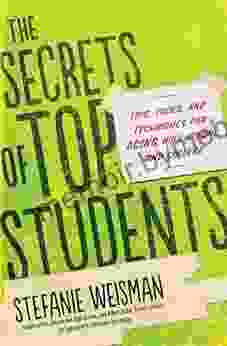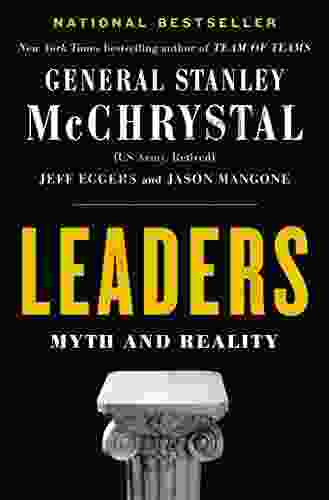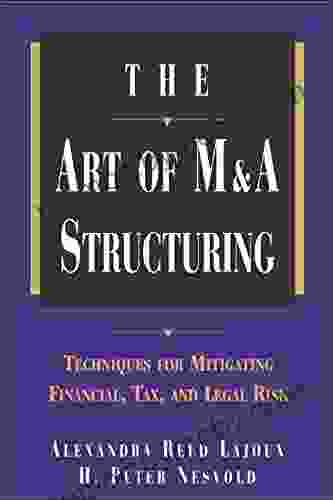Tips, Tools, and Techniques for Acing High School and College

Are you ready to ace high school and college? This comprehensive guide will provide you with all the tips, tools, and techniques you need to succeed in your academic journey.
Chapter 1: The Importance of Effective Studying
Effective studying is essential for success in high school and college. In this chapter, you will learn about different study methods and how to find the ones that work best for you. You will also learn how to create a study schedule, set goals, and stay motivated.
4.3 out of 5
| Language | : | English |
| File size | : | 1564 KB |
| Text-to-Speech | : | Enabled |
| Screen Reader | : | Supported |
| Enhanced typesetting | : | Enabled |
| Word Wise | : | Enabled |
| Print length | : | 290 pages |
Study Methods
- Spacing: Studying material over several short periods of time is more effective than cramming it all in at once.
- Interleaving: Mixing up different subjects or topics while you study can help you remember the information better.
- Active recall: Trying to recall information from memory without looking at your notes helps you strengthen your understanding.
- Elaboration: Connecting new information to what you already know helps you make sense of it and remember it better.
- Retrieval practice: Regularly testing yourself on the material you are studying helps you identify areas where you need more practice.
Creating a Study Schedule
Creating a study schedule can help you stay organized and make sure you are using your time wisely. When creating a study schedule, consider the following factors:
- Your classes and homework assignments
- Your extracurricular activities
- Your sleep and eating habits
- Your preferred study times
Setting Goals
Setting goals can help you stay motivated and on track. When setting goals, make sure they are SMART (specific, measurable, achievable, relevant, and time-bound).
Staying Motivated
Staying motivated can be difficult, but there are a few things you can do to keep yourself going. Here are a few tips:
- Set realistic goals.
- Break down large tasks into smaller, more manageable ones.
- Reward yourself for your accomplishments.
- Find a study buddy or group to help you stay accountable.
- Take breaks when you need them.
Chapter 2: Time Management
Time management is essential for success in high school and college. In this chapter, you will learn how to create a daily schedule, prioritize your tasks, and use your time wisely.
Creating a Daily Schedule
Creating a daily schedule can help you stay organized and make sure you are using your time wisely. When creating a daily schedule, consider the following factors:
- Your classes and homework assignments
- Your extracurricular activities
- Your sleep and eating habits
- Your preferred study times
Prioritizing Your Tasks
Not all tasks are created equal. Some tasks are more important than others, and some tasks are more urgent than others. Learning to prioritize your tasks can help you make sure that you are spending your time on the most important things.
There are a few different ways to prioritize your tasks. One way is to use the Eisenhower Matrix. The Eisenhower Matrix is a four-quadrant grid that helps you categorize your tasks based on their importance and urgency.
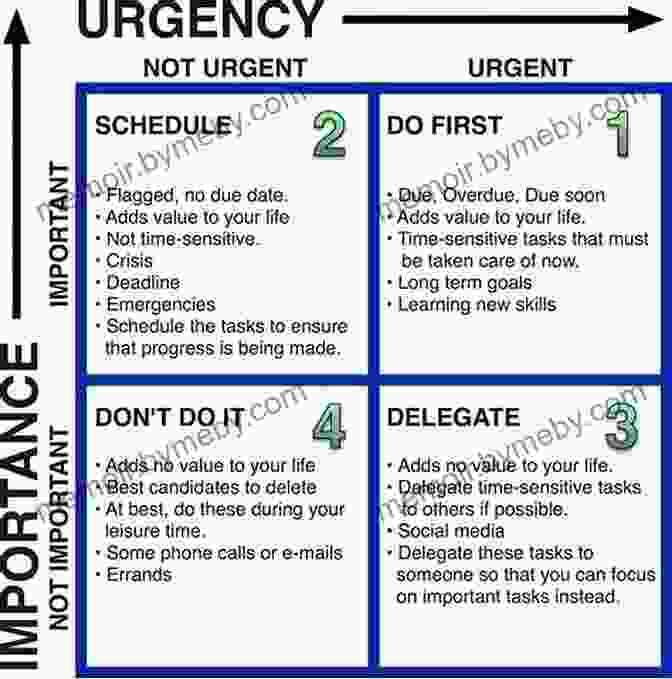
Once you have categorized your tasks, you can start to work on the most important and urgent tasks first.
Using Your Time Wisely
There are a number of things you can do to use your time more wisely. Here are a few tips:
- Plan ahead. Taking a few minutes to plan your day or week can help you make the most of your time.
- Set priorities. Not all tasks are created equal. Some tasks are more important than others, and some tasks are more urgent than others. Learn to prioritize your tasks so that you can spend your time on the most important things.
- Avoid distractions. There are a lot of things that can distract you from your studies. Learn to identify your distractions and find ways to avoid them.
- Take breaks. It is important to take breaks throughout the day to avoid burnout. Get up and move around, or take a few minutes to relax and clear your head.
- Reward yourself. When you accomplish a task, reward yourself with something you enjoy. This will help you stay motivated and on track.
Chapter 3: Test Taking
Test taking is a skill that can be learned. In this chapter, you will learn how to prepare for tests, how to take tests effectively, and how to deal with test anxiety.
Preparing for Tests
The best way to prepare for tests is to start studying early. Cramming at the last minute is not effective. Instead, start studying a few weeks before the test. This will give you plenty of time to review the material and understand the concepts.
When studying for tests, be sure to:
- Review your notes and textbooks.
- Do practice problems.
- Create flashcards.
- Form study groups with classmates.
Taking Tests Effectively
On test day, it is important to arrive on time and be prepared. Bring all of the materials you will need, such as pens, pencils, and a calculator. It is also important to get a good night's sleep before the test and eat a healthy breakfast on the day of the test.
Once the test begins, be sure to read the instructions carefully. Answer the questions to the best of your ability. If you do not know the answer to a question, skip it and come back to it later. It is also important to manage your time wisely. Do not spend too much time on any one question.
Dealing with Test Anxiety
Test anxiety is a common problem. If you suffer from test anxiety, there are a few things you can do to cope:
- Prepare thoroughly. The more prepared you are for a test, the less anxious you will be.
- Practice relaxation techniques. There are a number of relaxation techniques that can help you reduce anxiety, such as deep breathing and meditation.
- Talk to your teacher or counselor. If you are struggling with test anxiety, talk to your teacher or counselor. They can help you develop strategies to cope with your anxiety.
Chapter 4: Note Taking
Note taking is an essential skill for students. In this chapter, you will learn how to take effective notes in class and during lectures.
Taking Notes in Class
When taking notes in class, it is important to be selective. You do not need to write down everything the teacher says. Instead, focus on the most important points.
There are a number of different note-taking methods. One popular method is the Cornell Method. The Cornell Method is a two-column note-taking system that helps you organize your notes and identify the most important points.
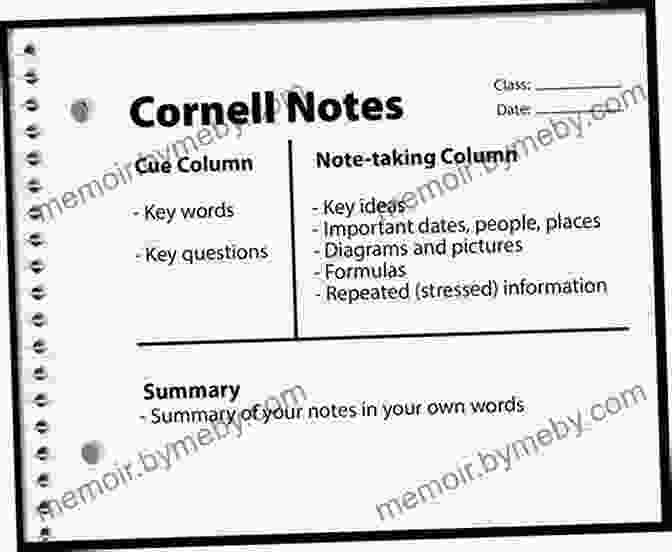
To use the Cornell Method, divide your notebook page into two columns. The left column is for your notes. The right column is for cues and questions.
As you take notes, write down the most important points in the left column. In the right column, write down cues and questions that will help you remember the information later.
Taking Notes During Lectures
Taking notes during lectures can be challenging. The lecturer may be speaking quickly, and it can be difficult
4.3 out of 5
| Language | : | English |
| File size | : | 1564 KB |
| Text-to-Speech | : | Enabled |
| Screen Reader | : | Supported |
| Enhanced typesetting | : | Enabled |
| Word Wise | : | Enabled |
| Print length | : | 290 pages |
Do you want to contribute by writing guest posts on this blog?
Please contact us and send us a resume of previous articles that you have written.
 Book
Book Novel
Novel Page
Page Chapter
Chapter Text
Text Story
Story Genre
Genre Reader
Reader Library
Library Paperback
Paperback E-book
E-book Magazine
Magazine Newspaper
Newspaper Paragraph
Paragraph Sentence
Sentence Bookmark
Bookmark Shelf
Shelf Glossary
Glossary Bibliography
Bibliography Foreword
Foreword Preface
Preface Synopsis
Synopsis Annotation
Annotation Footnote
Footnote Manuscript
Manuscript Scroll
Scroll Codex
Codex Tome
Tome Bestseller
Bestseller Classics
Classics Library card
Library card Narrative
Narrative Biography
Biography Autobiography
Autobiography Memoir
Memoir Reference
Reference Encyclopedia
Encyclopedia Ali Master
Ali Master Allison Brennan
Allison Brennan Robert Condon
Robert Condon Amy Grisak
Amy Grisak Alfred Russel Wallace
Alfred Russel Wallace Allison Pataki
Allison Pataki Alison Hawthorne Deming
Alison Hawthorne Deming Aminatta Forna
Aminatta Forna Lisa Napoli
Lisa Napoli Alexander Monro
Alexander Monro Amarie Avant
Amarie Avant Alicia Nitecki
Alicia Nitecki Amelia Zachry
Amelia Zachry Amanda Driscoll
Amanda Driscoll Alfred Begum
Alfred Begum Amaya Black
Amaya Black Allan Hall
Allan Hall Heidi Mclynn
Heidi Mclynn Mary Demichele
Mary Demichele De Andre Salter
De Andre Salter
Light bulbAdvertise smarter! Our strategic ad space ensures maximum exposure. Reserve your spot today!
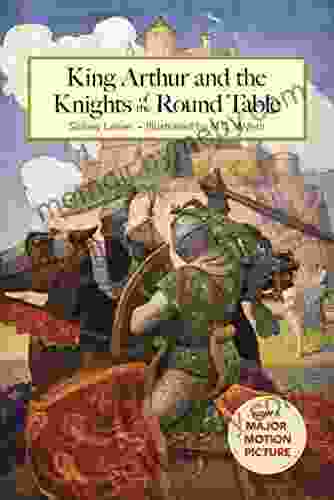
 Dwayne MitchellUnveiling the Enchanting World: "King Arthur and the Knights of the Round...
Dwayne MitchellUnveiling the Enchanting World: "King Arthur and the Knights of the Round...
 Desmond FosterUnveiling the Intriguing World of Gallagher Girls: A Spy-Filled Adventure...
Desmond FosterUnveiling the Intriguing World of Gallagher Girls: A Spy-Filled Adventure... Sam CarterFollow ·9.1k
Sam CarterFollow ·9.1k Vernon BlairFollow ·5.2k
Vernon BlairFollow ·5.2k Jace MitchellFollow ·2k
Jace MitchellFollow ·2k Caleb CarterFollow ·9k
Caleb CarterFollow ·9k Chinua AchebeFollow ·5.9k
Chinua AchebeFollow ·5.9k Herman MitchellFollow ·14k
Herman MitchellFollow ·14k Jamie BellFollow ·16.3k
Jamie BellFollow ·16.3k Roald DahlFollow ·4.1k
Roald DahlFollow ·4.1k

 Robert Reed
Robert ReedConservation Habitat Changes And The Rise Of Urban...
As urban areas continue to expand, wildlife...

 W. Somerset Maugham
W. Somerset MaughamRide the Waves: The Ultimate Guide to Surfing Indonesia...
Are you ready to embark on an unforgettable...

 Arthur Conan Doyle
Arthur Conan DoyleThe Widow, the Priest, and the Octopus Hunter: A Literary...
Prologue: A Tapestry...

 Fernando Bell
Fernando BellRide the Waves of Adventure: The Ultimate Guide to...
Unveiling the Surfing Paradise of Peru For...
4.3 out of 5
| Language | : | English |
| File size | : | 1564 KB |
| Text-to-Speech | : | Enabled |
| Screen Reader | : | Supported |
| Enhanced typesetting | : | Enabled |
| Word Wise | : | Enabled |
| Print length | : | 290 pages |


